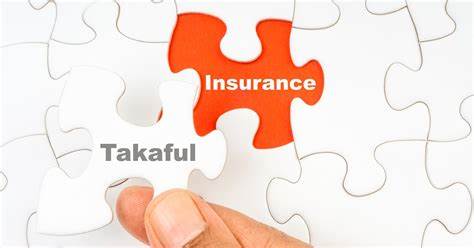What Is Takaful Insurance and How Does It Work?

Last Updated on by Daniel Lawrence
Insurance is a financial tool that provides individuals and businesses with protection and peace of mind. It offers coverage for various risks and uncertainties, but not all insurance models are the same. Takaful insurance, also known as Islamic insurance, is a unique system designed to align with Islamic principles and ethics. In this blog post, we’ll delve into the world of Takaful insurance, exploring what it is and how it works.
What Is Takaful Insurance?
Takaful, derived from the Arabic word “kafala,” which means to help, is an insurance concept rooted in Islamic law (Shariah). Unlike conventional insurance, which often involves elements of uncertainty and speculation, Takaful adheres to the principles of mutual cooperation, shared responsibility, and risk-sharing. It is a system built on ethical and Islamic financial principles that provide financial protection without compromising on religious beliefs.
How Does Takaful Insurance Work?

Takaful insurance operates on a unique set of principles and guidelines that distinguish it from traditional insurance. Here’s how Takaful insurance works:
- Risk Pooling: The fundamental concept of Takaful is based on the idea of risk-sharing. Participants (policyholders) form a risk pool by contributing money into a Takaful fund. This fund is used to pay claims and cover administrative expenses.
- Contributions (Tabarru): Participants pay regular contributions or donations to the Takaful fund. These contributions are not considered premiums but rather charitable donations. They go into a common pool, and policyholders agree to help one another in times of need.
- Risk Assessment: Takaful operators assess the risks involved and calculate the appropriate contribution for each participant based on their individual risk factors.
- Investment: The Takaful fund is invested in Shariah-compliant investments, such as ethical businesses, real estate, and Sukuk (Islamic bonds). Profits from these investments are shared among the participants.
- Surplus Sharing (Surplus/Profit Distribution): At the end of each financial year, any surplus funds remaining in the Takaful fund are distributed among the participants, typically on a pro-rata basis. This surplus can reduce future contributions or be taken as cash.
- Non-Participation in Riba (Interest) and Gharar (Uncertainty): Takaful policies strictly adhere to Islamic principles, which means that they avoid investments in businesses related to gambling, alcohol, pork, or any interest-based transactions.
- Transparency: Takaful operators are required to provide transparent financial statements to participants, allowing them to monitor the performance of the fund and understand how their contributions are being managed.
- Shariah Supervision: Takaful operators have a Shariah board or committee composed of Islamic scholars who ensure that all operations are in compliance with Islamic law.
Types of Takaful Insurance
There are several types of Takaful insurance, including:
- Family Takaful: Provides protection for family members in case of death or disability.
- General Takaful: Covers various non-life risks, such as car insurance, property insurance, and health insurance.
- Investment-Linked Takaful: Combines protection with investment opportunities, allowing participants to invest their contributions in a selection of funds.
- Group Takaful: Designed for employers to provide insurance coverage to their employees.
Conclusion
Takaful insurance offers an ethical and Shariah-compliant alternative to conventional insurance. It operates on the principles of risk-sharing, mutual cooperation, and transparency. By pooling resources and adhering to Islamic financial principles, Takaful provides a viable option for individuals and businesses seeking insurance coverage while staying true to their religious beliefs. It offers a compelling model for those looking for insurance options that align with their ethical and religious values.